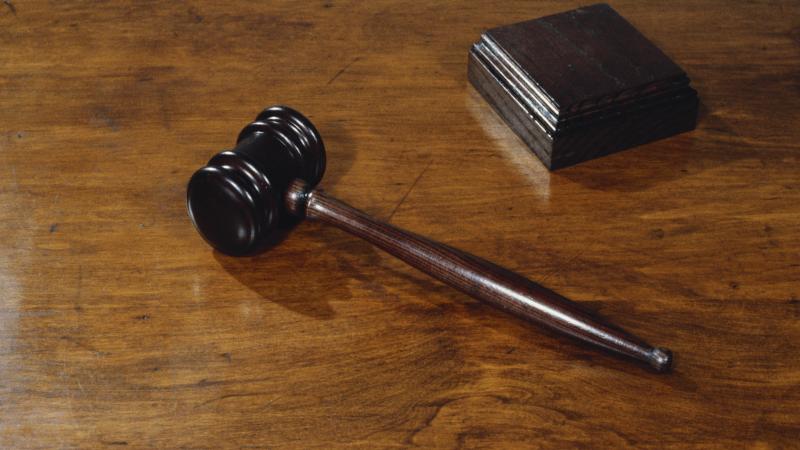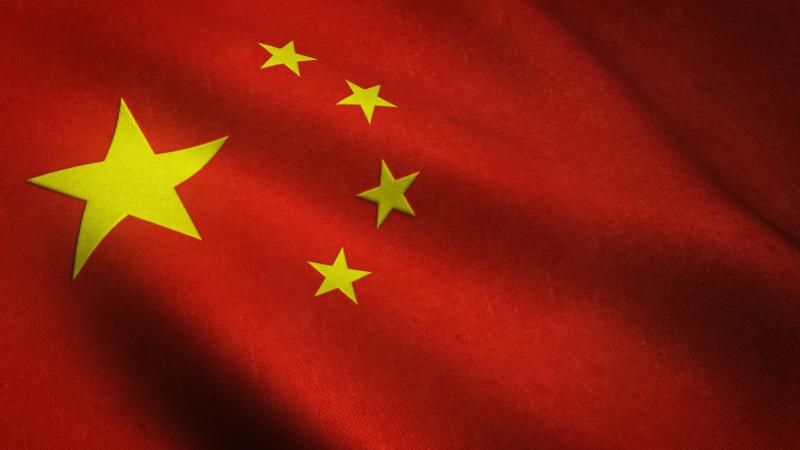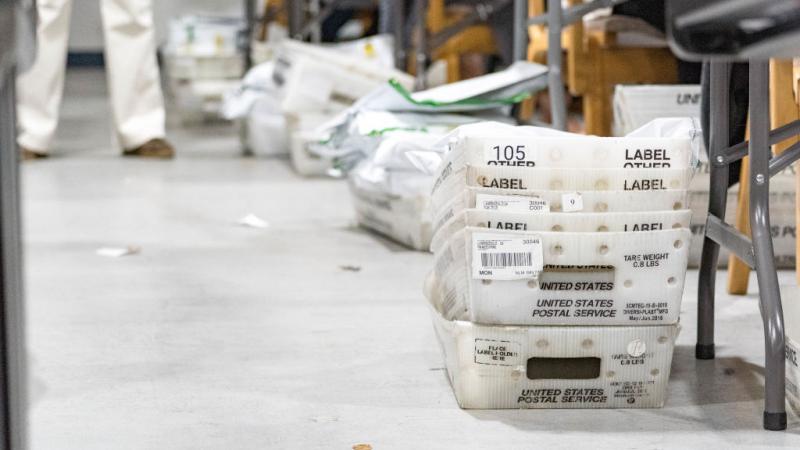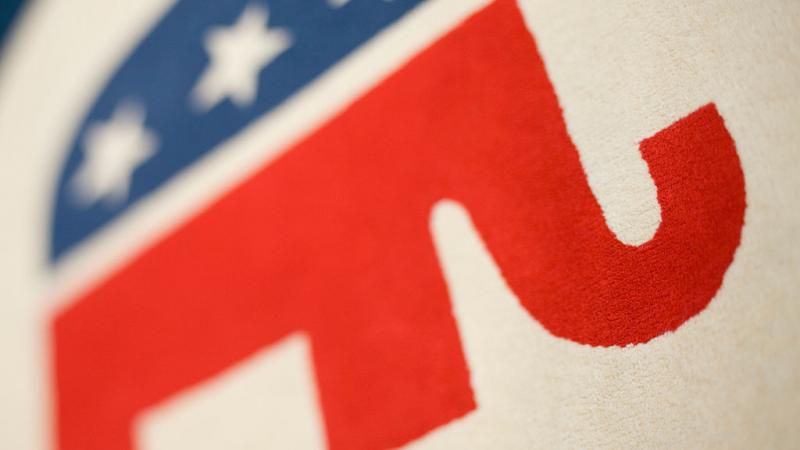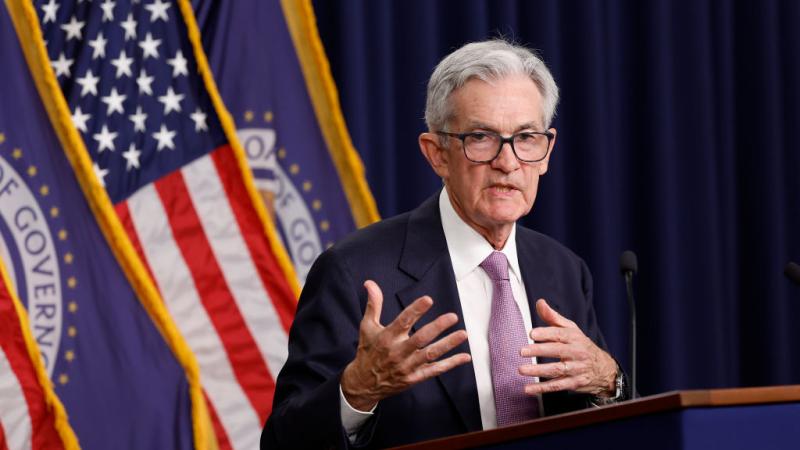NIH Director Bhattacharya warns U.S. taxpayers are funding science journals compromised by China
Publisher behind 'Proximal Origin' paper that dismissed lab leak, covertly shaped by Collins and Fauci, reportedly flush with Chinese money. "What exact service is being provided" for massive publishing fees, Bhattacharya wonders.
The National Institutes of Health isn't just concerned about how much taxpayers are spending to read scientific and medical journals where the published research has already been funded by taxpayers. It wants to know more about publishers' possible ties to hostile powers.
NIH Director Jay Bhattacharya announced a cap starting this fall on how much journals can charge "NIH-supported scientists to make their research findings publicly accessible" and told investigative journalist Paul Thacker the fees prop up Germany-based publisher Springer Nature, which has a "tremendous investment and interest in the Chinese scientific establishment."
The 3,000-journal publishing behemoth declined to confirm to Fox News last month the Trump administration terminated one contract and didn't renew three others, claiming there was "no material change" to its "global business."
One of its journals is Nature Medicine, which published the "Proximal Origin" paper dismissing a COVID-19 lab leak from China after forcing the coauthors to completely rule out the plausibility of a leak as a condition of publishing it.
The paper was covertly shaped by Bhattacharya predecessor Francis Collins and then-National Institute of Allergy and Infectious Diseases Director Anthony Fauci, who funded the research that may have unleashed the pandemic with U.S. taxpayer dollars.
Then-interim U.S. Attorney Ed Martin sought information from Nature Medicine this spring, suggesting it committed a quid pro quo with Collins and Fauci, who soon after gave coauthor Kristian Andersen federal grants, by leaving their names off "Proximal Origin."
Springer Nature also publishes Scientific American and Nature, which both endorsed Democrat Joe Biden for president in 2020. The former tried to quash the Chinese lab-leak theory as "xenophobia."
Estimated $2.5 billion in open-access fees in 2023
Bhattacharya's announcement Tuesday, two months after rushing a new policy to immediately make public NIH-funded research, said major publishers charge up to $13,000 per article for "immediate open access" on top of subscription fees, apparently referring to Nature's "gold open access" option.
He said "one publishing group reportedly" got more than $2 million from NIH subscriptions, not including "tens of millions more through exclusive article processing charges." A Canadian study estimated the six largest publishers charged more than $2.5 billion in open-access fees in 2023, nearly triple the spending from 2019.
Bhattacharya said he once pulled his own "self-funded" paper from a journal after realizing it charged an "exorbitant" publishing fee.
"Big publishers – Springer Nature, Elsevier – have effective monopoly power" over scientific publishing, and it's "crazy" to charge so much for just "putting it out there on the internet" when most journals don't pay scientific reviewers and pay their editors "very little," Bhattacharya told Thacker. "So what exact service is being provided?"
The new cap will keep publication fees "reasonable across the research ecosystem," NIH said. Asked for a more specific figure, Bhattacharya told Just the News "we're still working that out … No firm number yet."
'Essentially taking the Chinese at their word'
Bhattacharya called out Springer Nature as tainted by Chinese government influence when Thacker asked how "Proximal Origin" had still not been corrected to note the participation of Fauci, Collins and World Health Organization chief scientist Jeremy Farrar, who convened the authors and made a key change to the paper.
"Essentially taking the Chinese at their word," the paper was published "very early in the pandemic and somehow concluded on the basis of very, very flimsy if any evidence" that SARS-CoV-2 must have come from a wet market, he said.
Thacker noted 2017 reporting by the Financial Times that Springer Nature blocked at least a thousand academic articles in China mentioning "sensitive" subjects to the ruling Chinese Communist Party, and 2021 Unherd reporting that Chinese institutions paid Springer Nature an estimated $10 million in sponsorship agreements the previous year.
HHS sources told Thacker, a former Senate pharmaceutical corruption investigator, the agency is looking at CCP influence on U.S. science agencies and universities as well, he said.
"I don't want to paint with too broad a brush" about scientists in China and Chinese scientists in the U.S., Bhattacharya said. "But we are in a competition with the Chinese establishment for the preeminent position of biomedical sciences in the 21st century" and "have to think carefully and strategically about our links with the Chinese government."
The NIH director declined to comment on "any ongoing investigations" when Thacker noted in his reporting last month that the Justice Department is investigating a federal grant to a viral "spillover" research program that includes "Proximal Origin" coauthor Andersen.
'We need a professional law enforcement investigation'
Andersen was "in the process of fleeing" the U.S. amid the DOJ investigation, and Norwegian molecular biologist Sigrid Bratlie claimed "several sources" told her that University of Oslo scientists were trying to recruit Andersen, according to Thacker.
A public records production to public health watchdog U.S. Right to Know revealed that Andersen was one of the scientists cited in an unclassified State Department Bureau of Intelligence and Research report, obtained by Thacker, that came out a week after "Proximal Origin."
Those scientists gave a briefing to the department that claimed "available genomic evidence" shows SARS-CoV-2 "probably emerged naturally in an animal," the unclassified report said.
A Dec. 4, 2020, email from State official David Feith, whom President Trump fired this April, relayed that Andersen sai in the briefing his initial doubts about SARS-CoV-2 being fully natural were "put to rest by more detailed analysis," which contradicted what Andersen told his coauthors a month after the briefing.
While Andersen, who claims to hold dual Danish and U.S. citizenship, told the San Diego Union-Tribune he has "considered leaving the United States" following NIH's ban on foreign subawards and NIAID cutting the spigot to his spillover research as "unsafe for Americans," he denied he had accepted a post at the University of Oslo.
“Did we have a foreign national parading into the intel agencies and convincing senior officials to not look into a matter?” an unnamed State official told Thacker. "That’s a counter-intelligence matter. We need a professional law enforcement investigation."
The Facts Inside Our Reporter's Notebook
Videos
Links
- Jay Bhattacharya announced a cap
- told investigative journalist Paul Thacker
- declined to confirm to Fox News
- forcing the coauthors to completely rule out
- covertly shaped by Bhattacharya's predecessor Francis Collins
- gave coauthor Kristian Andersen federal grants
- Scientific American
- Nature
- quash the Chinese lab-leak theory as "xenophobia
- immediately make public NIH-funded research
- Nature's "gold open access" option.
- Canadian study
- Financial Times
- 2021 Unherd reporting
- Thacker noted his reporting last month
- public records production
- David Feith, whom President Trump fired this April
- contradicted what Andersen told his coauthors
- San Diego Union-Tribune
- NIH's ban on foreign subawards
